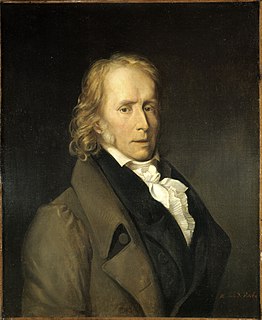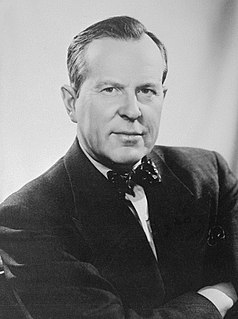A Quote by Benjamin Constant
Nearly always, so as to live at peace with ourselves, we disguise our own impotence and weakness as calculation and policy; it is our way of placating that half of our being which is in a sense a spectator of the other.
Related Quotes
Vulnerability is not weakness, and the uncertainty, risk, and emotional exposure we face every day are not optional. Our only choice is a question of engagement. Our willingness to own and engage with our vulnerability determines the depth of our courage and the clarity of our purpose; the level to which we protect ourselves from being vulnerable is a measure of our fear and disconnection.
In order to settle down in the quiet of our own being we must learn to be detached from the results of our own activity. We must be content to live without watching ourselves live, to work with expecting immediate reward, to love without an instant satisfaction, and to exist without any special recognition. It is only when we are detached from ourselves that we can be at peace with ourselves.
Where is peace to be found? The answer is surprising but clear. In weakness. Why there? Because in our weakness, our familiar ways of controlling and manipulating our world are being stripped away, and we are forced to let go from doing much, thinking much, and relying on our self-sufficiency. Right there where we are most vulnerable, the peace that is not of this world is mysteriously hidden.
In order to find God in ourselves, we must stop looking at ourselves, stop checking and verifying ourselves in the mirror of our own futility, and be content to be in Him and to do whatever He wills, according to our limitations, judging our acts not in the light of our own illusions, but in the light of His reality which is all around us in the things and people we live with.
Education is the proper way to promote compassion and tolerance in society. Compassion and peace of mind bring a sense of confidence that reduce stress and anxiety, whereas anger and hatred come from frustration and undermine our sense of trust. Because of ignorance, many of our problems are our own creation. Education, however, is the instrument that increases our ability to employ our own intelligence.
Most people would say they live with an internal angst that they can't always put their finger on. This is because the Internet has changed our very way of being in this world, compelling us to be perpetually "on" - from our cars to our computers, our tablets to our smartphones, our desks to our living rooms or dining tables, our churches to our libraries to our schools.
I wish to reiterate all the reasons which [my predecessor] has presented in favor of the policy of maintaining a strong navy as the best conservator of our peace with other nations and the best means of securing respect for the assertion of our rights of the defense of our interests, and the exercise of our influence in international matters.
The great have private feelings of their own, to which the interests of humanity and justice must curtsy. Their interests are so far from being the same as those of the community, that they are in direct and necessary opposition to them; their power is at the expense of OUR weakness; their riches of OUR poverty; their pride of OUR degradation; their splendour of OUR wretchedness; their tyranny of OUR servitude.
It has often been said that power corrupts. But it is perhaps equally important to realize that weakness, too, corrupts. Power corrupts the few, while weakness corrupts the many. Hatred, malice, rudeness, intolerance, and suspicion are the faults of weakness. The resentment of the weak does not spring from any injustice done to them but from their sense of inadequacy and impotence. We cannot win the weak by sharing our wealth with them. They feel our generosity as oppression.
Finding a way to extend forgiveness to ourselves is one of our most essential tasks. Just as others have been caught in suffering, so have we. If we look honestly at our life, we can see the sorrows and pain that have led to our own wrongdoing. In this we can finally extend forgiveness to ourselves; we can hold the pain we have caused in compassion. Without such mercy, we will live our own life in exile.
































